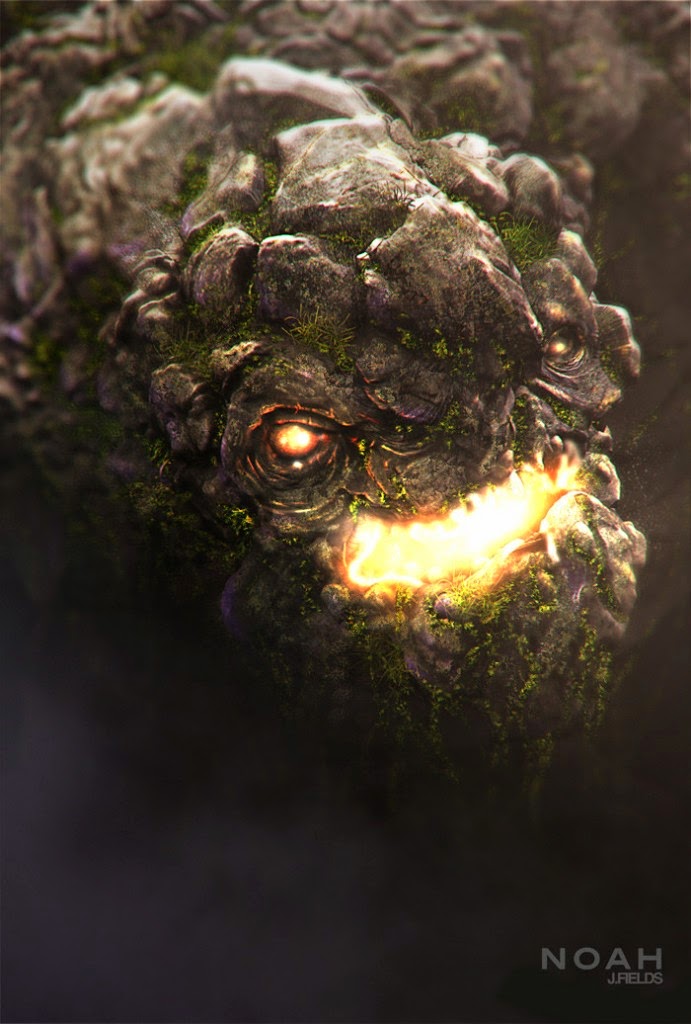Originally published in The Daily Nebraskan, 4-1-14
“Noah,” starring Russell Crowe, is a mixed bag of tried-and-true storytelling methods and refreshing vision.
In recent years, Hollywood has seen a resurgence of epic films in the vein of “The Ten Commandments” and “Spartacus.” It started with 2000’s “Gladiator,” also starring Crowe, all the way to this year’s “Pompeii” and the two Hercules films slated for 2014. The results have varied, but “Noah” is a worthwhile adventure epic told on a mythic level, strengthened by director Darren Aronofsky’s bold style, a solid cast and some tasty visuals.
When Aronofsky took on the project, it seemed like an odd choice when compared with the small, personal scale of his last two films, “Black Swan” and “The Wrestler.” In interviews, he said he wanted to tell a more universal story with “Noah” rather than a more traditional Judeo-Christian narrative. As a result, the film is told more like a Greek myth than “The Passion of the Christ.”
 The story of Noah takes on an interesting metaphysical
subtext under Aronofsky’s direction. When Noah tells the story of
creation to his family aboard the ark, he follows the story of the Big
Bang and evolution, connecting to the biblical canon with the phrase,
“And God created Man.” When the Watchers tell their backstory, we see
them descend to earth from space, where we can also see stars and nebula
in the distance. When a Watcher is killed and ascends to the Creator,
it actually ascends into space, and we can see a (very) wide shot of the
earth below, neatly covered in spiraling storm clouds.
The story of Noah takes on an interesting metaphysical
subtext under Aronofsky’s direction. When Noah tells the story of
creation to his family aboard the ark, he follows the story of the Big
Bang and evolution, connecting to the biblical canon with the phrase,
“And God created Man.” When the Watchers tell their backstory, we see
them descend to earth from space, where we can also see stars and nebula
in the distance. When a Watcher is killed and ascends to the Creator,
it actually ascends into space, and we can see a (very) wide shot of the
earth below, neatly covered in spiraling storm clouds.“Noah” opens with a fascinating prologue that details the “story so far” in the canon of biblical tales. The sequence is so interesting, it makes me wonder what other Bible stories would be like if they were styled like “Noah.” They would probably vary in genre and have a lot of wild, otherworldly characters – that’s a franchise opportunity right there. The introduction tells the story of Adam and Eve and their children Cain, Abel and Seth. Cain murders Abel and takes control of the earth, spreading a diseased civilization across the planet.
 Noah is the
last remaining son in the line of Seth. He has a wife (Jennifer
Connelly) and two sons. He also comes to adopt Ila (Emma Watson) when
his family finds her injured in a destroyed village. One day, the
Creator sends Noah a vision. He sees himself underwater surrounded by
thousands of drowning people, as the world is destroyed beneath them.
It’s a haunting image, and to Noah the message is clear: the Creator is
sending a storm to cleanse the earth of the wicked.
Noah is the
last remaining son in the line of Seth. He has a wife (Jennifer
Connelly) and two sons. He also comes to adopt Ila (Emma Watson) when
his family finds her injured in a destroyed village. One day, the
Creator sends Noah a vision. He sees himself underwater surrounded by
thousands of drowning people, as the world is destroyed beneath them.
It’s a haunting image, and to Noah the message is clear: the Creator is
sending a storm to cleanse the earth of the wicked.Noah and his family set out to build the ark that will carry all the animal species of creation on to the new world. The methods they use to house and sedate the animals are interesting to watch, and so are the scores of animals that flock to the ship. There is even a scene where every snake and reptile in the world slithers up to the ark at once. It’s a marvel to watch, like most of the film.
“Noah” gets more things right than modern adventure epics usually do, and it makes a good case for the (sometimes tiring) trend of similar films set in ancient times. Aronofsky is still a better director when working with a smaller budget and cast, but it’s comforting to know that he could still do something interesting with a story as old as time itself.
Also, I’m thinking a sequel is in order. Let’s see Aronofsky’s “Tower of Babel” next.



No comments:
Post a Comment